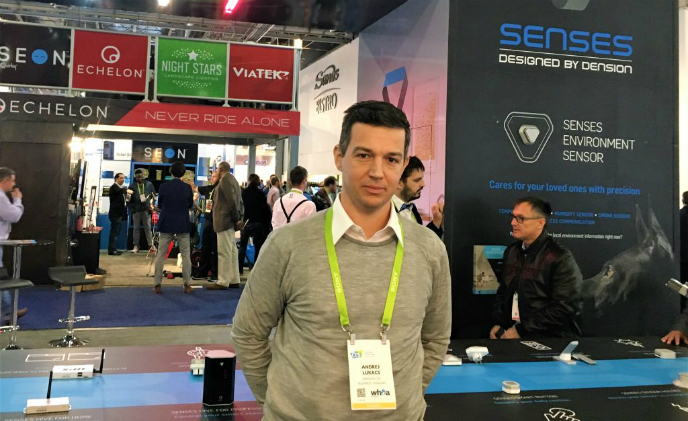Smart home technologies were developed for the use case of home. However, they’ve been seen more and more in other industries as well – including hotels, retails and more.
Smart home technologies were developed for the use case of home. However, they’ve been seen more and more in other industries as well – including hotels, retails and more.
The first battlefield – Hotel rooms
“Alexa, make the room cooler.” “Alexa, show me some live sport games.” You might hear this in a home equipped with connected devices supporting Alexa. But, when you hear this, “Alexa, get me a room service.” It’s actually a hotel room.
Voice assistants have brought lots of convenience that we could control many devices with our voices and eliminating the remote controllers. In addition to homes, hotels are looking into this technology and seeing if this can offer greater comforts for their guests.
The Wynn and Marriott have installed some Echo devices in their hotel rooms to bring voice-control to their customers. Service providers serving hotels such as Volara and Voiceio have appeared in the market due to this voice-control trend. Volara, for example, has served 25 hotels in the U.S. and the voice applications it built for hotels have interacted with 400,000 guests in 2017.
In hotels, however, smart speakers are required to be tailored into different needs from homes. For example, the voice assistants would be more greeting for service reasons, and guests would need some voice skills to tell the Wi-Fi password, request for room services or give recommendations for attractions around.
Some smaller-scale companies which produce smart speakers but have less resources than Amazon or Google, are now entering the hotel industry and customize devices for them.
Clazio, a startup creates devices combining Google Home and a tablet screen, has worked with hotels in China and designed customized smart speakers for them. Bonjour, a smart alarm clock featuring voice assistants, is working with hotels as well. Its own smart assistant with knowledge of English and French, and the company designs various skills and trigger words for hotel partners.
Building new shopping experiences
Retail stores is another use case. In a store installed with various senses and other connected devices. It could offer a “future shopping experience.”
Senses, a company under audio devices maker Dension’s umbrella, uses its technologies to help retailers imagine another possible shopping visit.
In a shoe store, each pair of shoes will have a smart light bulb installed under. As a consumer looks for 10-size running shoes for men, all products match the keyword will light up to help customers find the preferred ones faster.
Another example, a coffee shop can install smart lighting and audio players. Under pre-scheduled, it will play a morning playlist with an energetic lighting during the day, and the evening playlist with warmer lights later. It therefore creates the atmosphere automatically for the customers visiting the place.
It’ll be everywhere
Smart home technology providers and device manufacturers are extending their expertise into other industries and see if they can help something with. It’s a great way to explore business opportunities since the competition in the sector is pretty high now.
 Andrej Lukács, the international sales manager at Senses, Dension
Andrej Lukács, the international sales manager at Senses, Dension
“You look around and you all see the same stuffs. People come here don’t ask what it is. But ask how are we different, how are we differentiate?” said Andrej Lukács, the international sales manager at Senses, Dension.
In order to differentiate itself, Senses goes into commercial spaces with home technologies and try to bring a new retail experience to customers.
Sensative, a Sweden startup, has pushed their window and door sensors, Strips, into other channels as well. Due to its thin and blend-in design, Strips can be installed right by the window edge without users sensing the device. Sensative has worked directly with window manufacturers to bring its sensors into homes and commercial buildings.
What other applications could be inspired by smart home technologies? For instance, temperature sensors can be installed in fresh food transportation; humidity sensors can be used in irrigation systems; and Alexa is starting to enter our cars and offices since Amazon launched new services and partnerships.
“I believe, wherever you see smart home today, it will go into buildings, industries, agriculture – everywhere,” said Cees Links, the general manager wireless connectivity at Qorvo.